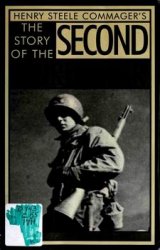The praetorian bands of Mexico like those of Rome must have money and indulgences and those who promise fairest secure their aid, until one promise fails or a better one is made.
Anthony Butler, U. S. Charge d'affaires, 18301°7
The military impaired government effectiveness by consuming the majority of government revenue. Officers repeatedly installed governments that they felt would better serve their financial and other interests. The military’s size alone made it inevitable that it would be a major consumer of government income. Both the insurgent and royalist forces were kept under arms after independence, yielding a force of some 75,000. The 22,750 men still under arms in 1825 continued to place a tremendous drain on government finances.108
Valid reasons existed for maintaining military strength. Until 1825, the Spanish continued to occupy San Juan de Ulua and interfere with operations of the port of Veracruz. Even after that date, the military faced the real threat of Spanish reconquest. Soon after Spain recognized Mexican independence and the danger of reconquest faded, Mexicans expected the military to reoccupy Texas.
Military spending and influence, however, went far beyond Mexico’s needs. Between 1821 and 1851 only six civilians served as president—for a total of 947 days—and fifteen generals occupied the presidency. Generals who commanded a division received three times the salary of governors. A high level of military spending was required to prevent officers from revolting and installing a patron who would provide increased funding. This was reflected in a saying of the time, “When salaries are paid, revolutions fade.”109
The many coups of the period mobilized no more than a few thousand men, and none attracted mass popular support. A successful coup provided virtually the only access to the presidency. Junior officers would support coups in response to explicit promises of promotions and wealth if the coup succeeded. Coups were not formed exclusively within the army. Regional factions of army officers formed alliances with tobacco and cotton farmers, textile manufacturers, and merchants, promising them the requisite government permits to ensure their business success in exchange for their support. Once they seized power, military men relied on civilian politicians to administer the country since the officers had little administrative experience.110
In addition to seeking financial favor, the military establishment openly opposed the maintenance of state militias, which it saw as a threat to its privileged status. This led to conflict, since outside Mexico City, people considered militias to be protectors of states’ rights and checks on the power of the army.111
Since there were few avenues to acquiring wealth in early nineteenth-century Mexico, the seizure of state power became an accepted avenue of upward mobility. Senior military officers, despite their lack of inherited wealth, repeatedly acquired substantial rural holdings.112
Despite its massive consumption of government revenue and its strong political role, the army never formed an effective fighting force, as became apparent during the Mexican—American War.
While officers used the military as a path to wealth and political power, its ranks were formed by the forced enlistment of vagabonds and criminals in cities and Indians from rural areas. Before the middle of the century, the military never emerged as a cohesive body. Many army commanders became autonomous political operatives, forming political alliances with individuals and factions to suit their own and their region’s aims. State militia units, which liberals felt would offset the political power of the regular army, were similarly divided along partisan and social lines.113




 World History
World History









